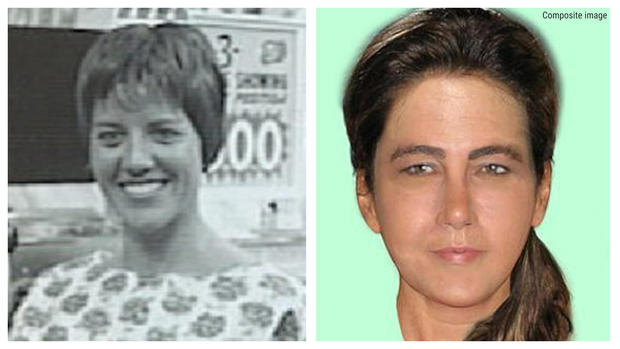FBI identifies "Lady of the Dunes" murder victim 48 years after grisly Cape Cod crime
The identity of Massachusetts' oldest unidentified homicide victim has been revealed publicly, almost 50 years after the infamous murder took place.
Authorities identified the victim as Ruth Marie Terry, a woman born in Tennessee who was 37 at the time of her death, during a Monday news conference. Federal and state agents shared updates about their investigation into the woman previously called "Lady of the Dunes" because authorities had been unable to identity her for decades.
Terry was found dead on July 26, 1974, in the sand dunes roughly a mile east of the Race Point Ranger station in Cape Cod, according to police, who estimate that she was killed several weeks before the discovery.
Although officials determined at the time that head trauma had caused Terry's death, the particularly violent and grisly circumstances of her murder had prevented them from identifying her. The killer had removed her hands, possibly to hide fingerprints and her head was crushed and nearly severed from her body.
Investigators determined that in addition to Tennessee, Terry had ties to California, Massachusetts and Michigan. She was "a daughter, sister, aunt, wife, and mother," police said Monday.
FBI officials partnered with the Massachusetts State Police and District Attorney's Office as well as Provincetown police to uncover Terry's identity, which was eventually revealed using investigative genealogy, the FBI said on Monday.
Investigative genealogy, also called forensic genealogy, is a technique where law enforcement pulls genetic information from databases to review in the context of a criminal case. Authorities can use DNA analysis in combination with traditional genealogy research and historical records, or private databases, to do this.
"This is a unique method that can generate new leads for unsolved homicides, as well as help identify unknown victims," said Joseph Bonavolonta, the special agent in charge of the FBI's Boston unit, in prepared remarks ahead of the announcement. "This is, without a doubt, a major break in the investigation that will, hopefully, bring all of us closer to identifying her killer."
Terry's relatives were contacted before the FBI announced her identity on Monday, the agency said, noting that her family has asked for privacy at this time. Investigators also noted that, despite this new development, the case remains unsolved as authorities continue to search for Terry's killer.
Police have asked the public to review Terry's case file and share any relevant tips, as they plan to operate under the assumption that the killer is still alive, said Cape and Islands District Attorney Michael O'Keefe.
"As investigators, cases like this one haunt us, and the agencies represented here today are constantly re-evaluating and coming up with new investigative strategies to try and advance them," said Bonavolonta. "We also realize that while we have identified Ruth as the victim of this horrific murder, it does not ease the pain for her family—nothing can—but hopefully it answers some questions while we continue to look for her killer."
